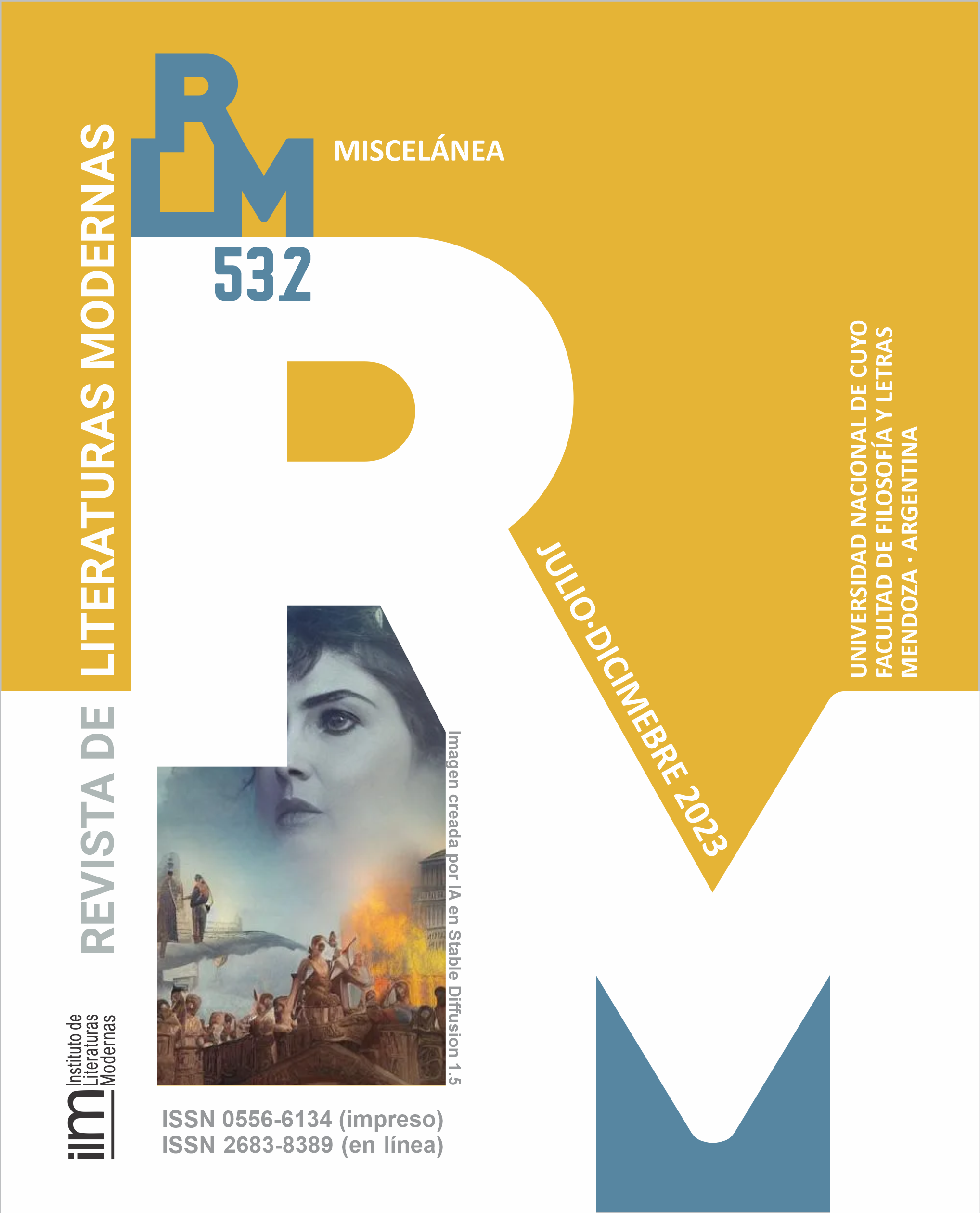The intellectual before reality: Essay and language of dissent in Mario Benedetti
Keywords:
Mario Benedetti, Committed intellectual, Language of dissent, Latin American sixties, EssayAbstract
This article broaches the relationship between the role of intellectuals in the Latin American sixties, the so-called "language of dissent" and the preponderant place that the essay had as a privileged discursive practice of these subjects. Through this genre in particular, the debates on commitment, militancy and the social and political role of literature acquire new dimensions by highlighting the interpretation that these intellectuals make of contemporaneity. The analysis of the dimensions that the language of dissent addresses in Mario Benedetti's essays offers us an excellent opportunity to reflect on the debates that they starred in the symbolic and intellectual field of those years. We will carry out, then, an analysis of those considerations that the role acquires and the redefinition that intellectual commitment acquires in the continental conjuncture. As we will be able to observe, a critical attitude, of situated commitment will be what leads him to be skeptical of phenomena such as the publishing boom. It then returns, once again, to the debate on the functionality of literature as an instrument of social change and cultural resistance.
Downloads
References
Agamben, G. (2011). Desnudez. Anagrama.
Altamirano, C. (2013). Intelectuales: notas de investigación sobre una cultura inquieta. Siglo Veintiuno Editores.
Benedetti, M. (1960/1968). El país de la cola de paja. (Séptima edición). Bolsilibros Arca.
Benedetti, M. (1967/1970). Letras del continente mestizo. Arca.
Benedetti, M. (1968). Sobre artes y oficios. Editorial Alfa.
Benedetti, M. (1974). El escritor latinoamericano y la revolución posible. Editorial Alfa.
Benedetti, M. (1979/1982). El recurso del supremo patriarca. Nueva Imagen.
Benedetti, M. (1987/2002). Subdesarrollo y letras de osadía. Alianza Editorial.
Benedetti, M. (1993). Perplejidades de fin de siglo. Seix Barral.
Da Cunha Giabbai, G. (2001). Mario Benedetti y la nación posible. Centro de Estudios Iberoamericanos Mario Benedetti.
Gilman, C. (1993). Política y cultura: Marcha a partir de los años sesenta. Nuevo texto crítico, vol. VI (11), pp. 153-186.
Gregory, S. (2014). El rostro tras la página: Mario Benedetti y el fracaso de una política del prójimo. Estuario.
Gutiérrez Girardot, R. (2004). Modernismo: supuestos históricos y culturales. Fondo de Cultura Económica.
Marchesi, A. (2019). Hacer la revolución (Primera edición). Siglo XXI Editores.
Nogueira Dobarro, A. (1992). Mario Benedetti. Literatura e Historia. El arte como proceso, proyecto y compromiso intelectual de liberación social. Anthropos, n° 132, pp. 2-24.
Pocock, J. G. A. (2009). Pensamiento político e historia. Ensayos sobre teoría y método. (Trad. Sandra Chaparro Martínez) Akal. (Trabajo original publicado en 1985)
Scheuzger, S. (2018). La historia contemporánea de México y la historia global: reflexiones acerca de los “sesenta globales”. Historia Mexicana, 68 (1), pp. 313–358. https://doi.org/10.24201/hm.v68i1.3644
Skinner, Q. (2007). Lenguaje, política e historia. (Pról. Eduardo Rinesi Skinner). Universidad Nacional de Quilmes.
Downloads
Published
How to Cite
Issue
Section
License
Copyright (c) 2023 Constanza Correa Lust, Claudio Gustavo Maíz

This work is licensed under a Creative Commons Attribution-NonCommercial-ShareAlike 4.0 International License.






